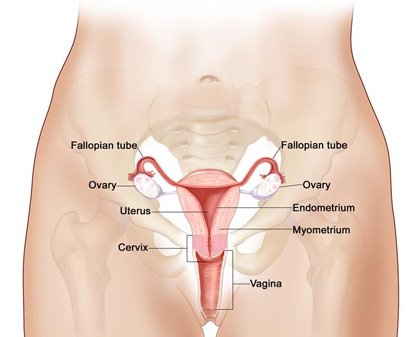Cervical Health Awareness Month is a chance to raise awareness about how women can protect themselves from HPV (human papillomavirus) and cervical cancer.
About 79 million Americans currently have HPV, the most common sexually transmitted disease. HPV is a major cause of cervical cancer.
The good news? HPV can be prevented with the HPV vaccine.
Cervical cancer can often be prevented with regular screening tests (called Pap tests) and follow-up care.
A Pap test can help detect abnormal (changed) cells early, before they turn into cancer. Most deaths from cervical cancer can be prevented if women get regular Pap tests and follow-up care.
Take these steps to help prevent cervical cancer
Schedule your Pap test.
Call a doctor’s office or local health clinic to schedule your Pap test and pelvic exam.
What about cost?
Testing for cervical cancer is covered under the Affordable Care Act, the health care reform law passed in 2010. Depending on your insurance plan, you may be able to get tested at no cost to you.
If you have private insurance, check with your insurance provider to find out what’s included in your plan. Ask about the Affordable Care Act.
If you don’t have insurance, find a program near you that offers free or low-cost Pap tests.
If you have Medicare, find out how often Medicare covers Pap tests and pelvic exams
The Basics
You can help prevent cervical cancer by getting regular screening tests (called Pap tests) and follow-up care. A Pap test (sometimes called a Pap smear) is done in a doctor’s office or clinic.
Most deaths from cervical cancer can be prevented if women get regular Pap tests. A Pap test can find abnormal (changed) cells before they turn into cancer. Pap tests can also find cervical cancer early, when it usually can be cured.
How often should I get tested?
How often you get screened is based on how old you are and how you are screened.
If you are age 21 to 29, get a Pap test every 3 years. If you are age 30 to 65, get screened every 3 to 5 years based on:
If you have just a Pap test, get screened every 3 years.
If you have a Pap test and an HPV test, get screened every 5 years.
If you are age 66 or older, ask your doctor if cervical cancer screening is recommended for you.
What happens during a Pap test?
A Pap test takes about 2 to 5 minutes. It may feel uncomfortable, but a Pap test doesn’t hurt.
While you lie on the exam table, the doctor or nurse will put a medical tool (called a speculum) into your vagina and open it to see the cervix. The doctor or nurse will use a special brush to collect a few cells from the cervix. These cells are sent to a lab to be checked by an expert.
The doctor or nurse will also do a pelvic exam to check the uterus, ovaries, and other organs.
What is cervical cancer?
Cervical cancer is cancer of the uterine cervix, which is the lower, narrow part of the uterus (or womb). The cervix connects the uterus to the vagina.
Abnormal cells in the cervix can turn into cancer if they aren’t found early and treated. Cervical cancer is more common in women over age 30.
The cervix connects the uterus (or womb) to the vagina.
Learn more about cervical cancer and screening:
For information about other services covered by the Affordable Care Act, visit HealthCare.gov.
Get ready for your Pap test.
Try to schedule your Pap test for a time when you won’t have your period. For 2 days before your test, doctors recommend that you don’t:
Use tampons
Have sex
Use birth control creams, foams,
or jellies
Douche (rinse the vagina with water or other liquid)
Get help understanding your Pap
test result.
Lower your risk of cervical cancer
A major cause of cervical cancer is HPV (human papillomavirus). HPV is the most common STD (sexually transmitted disease).
Some types of HPV can cause genital and anal warts. Other types of HPV can cause cervical cancer and other types of cancer.
You are at higher risk of getting
HPV if you:
Started having sex before age 18
Have unprotected sex
Have many different sex partners
Have a sex partner who has other sex partners
Doctors recommend that women age 26 and younger get the HPV vaccine. The HPV vaccine is given in 3 shots over 6 months. The shots protect against the types of HPV that cause most cases of cervical cancer.
Girls and boys can get the HPV vaccine, too. If you have kids, ask their doctor about the HPV vaccine.
Get your well-woman visit every year.
Talk to your doctor or nurse about other important screenings and services to help you stay healthy.
